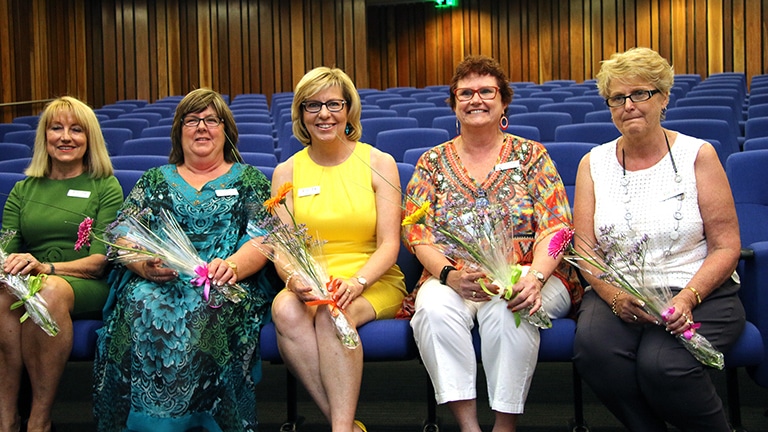
The Hunter Children’s Research Foundation has provided funding for a further three project grants to improve children’s health.

Celebrating its 20th year of fundraising, the Hunter Children’s Research Foundation (HCRF) recently provided funding for a further three project grants to improve children’s health.
Dr Adam Collison will investigate the role of microbiome development in the early origins of asthma. He says there is emerging evidence that bacteria in the infant’s gut can impact immune function and contribute to the immune responses seen in asthma. In this study, Dr Collison will investigate if there are differences in the types of bacteria and the timing of colonisation through the first year of life.
Dr Komal Vora will undertake a study in a complex genetic disorder known as Prader-Willi Syndrome that affects development and growth of the child, manifesting as cognitive disability, obesity, short stature and a chronic feeling of hunger. There is conflicting evidence linking secondary thyroid disease to Prader-Willi Syndrome, and the decision whether or not to treat patients with thyroxine (a hormone replacement therapy) is left to the clinician.
Dr Vora’s team aims to develop a minimally-invasive diagnostic test to aid with clinical diagnosis and treatment strategy for secondary hypothyroidism in children with PWS. The researchers hypothesise that serum miRNAs may represent a novel class of biomarker.
Dr Scott Nightingale aims to develop an evidence-based internet intervention to improve symptoms, functioning and health-related quality of life in children with functional abdominal pain.
Functional abdominal pain is one of the most frequently occurring pain syndromes in childhood, impacting school attendance, health-care needs and quality of life. Cognitive-Behaviour Therapy, or CBT, is one of a few effective therapies.
“CBT has traditionally involved one-on-one meetings between the patient and their parent/carer and a psychologist or counsellor trained in CBT methods, which can be costly and difficult to access, particularly as multiple sessions are required,” Dr Nightingale said.
He believes an internet-based intervention may be particularly suited for younger populations who are well accustomed to electronic forms of communication, with the advantage of consistency, cost-efficiency and easy accessibility.
The Awards brought the total amount of HCRF research funding since 1996 to over $1.3 million. Projects have included everything from asthma to ear infections, epilepsy and diabetes.
HMRI would like to acknowledge the Traditional Custodians of the land on which we work and live, the Awabakal and Worimi peoples, and pay our respects to Elders past and present. We recognise and respect their cultural heritage and beliefs and their continued connection to their land.
Hunter Medical Research Institute
We’re taking healthy further.
Locked Bag 1000
New Lambton
NSW, Australia, 2305


This site is protected by reCAPTCHA and the Google Privacy Policy and Terms of Service apply.
Copyright © 2024 Hunter Medical Research Institute | ABN: 27 081 436 919
Site by Marlin Communications
